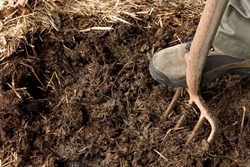
Related
Top stories






More news


Marketing & Media
Ads are coming to AI. Does that really have to be such a bad thing?














The four-year US$19 million (13.78 Million Euro) programme will be managed by FAO and will focus on smallholder irrigation and livestock production support activities.
FAO's sub-regional coordinator for Southern Africa and country representative in Zimbabwe, David Phiri, said, "This partnership between the Government of Zimbabwe, the EU and FAO is a reaffirmation of the commitment and dedication of all the three players in ensuring a food-secure Zimbabwe. Globally, the EU is FAO's largest resource partner, and in Zimbabwe we have already partnered on a number of projects. This new programme is testimony to the existing excellent collaboration for the benefit of Zimbabwe's smallholder farmers."
Existing smallholder irrigation schemes have generally performed poorly as a result of technical and financial problems. Blocked canals and erratic power supply are among the factors that have led to underutilisation of even the few irrigation infrastructures available. With poor and deteriorating rainfall in catchment areas, the need for rehabilitation and new irrigation units is evident.
Currently only 61 percent (10,000 ha) of total land equipped with irrigation facilities is functional. The project aims to increase this area by an additional 1,000 ha. This will be done through, improving irrigation infrastructure, capacity development of farmers to practice irrigation farming as a business and strengthening of community-level Irrigation Management Committees.
The irrigation support will target 20 irrigation schemes in Manicaland and Matabeleland South provinces reaching a total population of 36,000 in and around the targeted schemes.
The livestock programme will place special emphasis on supporting 40,000 poor farmers - in Nkayi and Lupane Districts in Matabeleland North Province - who practise mixed crop-livestock production. Both these regions are characterised by low rainfall, frequent mid-season dry spells and extensive crop failure.
"Crop production in these districts is risky and the province is one of the most food insecure in the country" Said Mr Phiri. "Livestock support programmes in the past have been few and short-term in nature and this four year programme will build on those short-term efforts, and accommodate the long livestock production cycle, thereby having greater impact on the livelihoods of these farmers" he added.
Building on lessons learnt from previous livestock projects, the current programme aims to improve livestock policies, animal health systems and strengthen the whole livestock value chain. This will lead to a more predictable and sustained income of smallholder farmers as well as improve general nutrition of farmers by ensuring access to animal products.